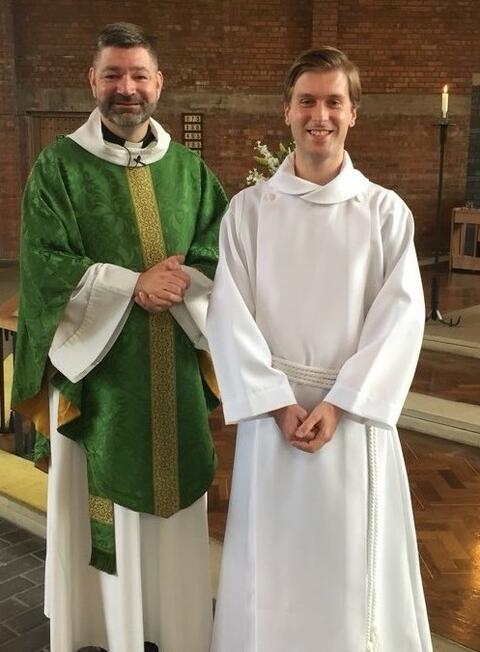Church Placements
On Sundays during term-time, students go on placement to a local church, perhaps of their own tradition, perhaps to a church very different from previous experience. In their first year, students are expected mainly to observe and reflect on their experience, and in the second year, are expected to preach and lead worship on a regular basis.
During the summer, students go on a four-week church placement to both shadow their supervisor, usually the vicar of the parish, and work on their own initiative.
Placements give a rich variety of experience to become familiar with a range of worship styles, pastoral care in different contexts, and practice in attentive listening, practical service, preaching and leading worship, and responsible initiative and theological reflection.
Community Placements
Students complete these placements in a single block during vacations or on a Thursday or Friday afternoon in term-time. A variety of opportunities is available in sectors such as chaplaincy to hospitals and hospices, schools, care homes, prisons or in work with charities that focus on the homeless, traveller communities or areas of deprivation.
Listening Skills
Good listening – to God, to oneself and to other people – is the foundation of effective ministry. Courses are offered in the skills of attentive listening at both a basic and an intermediate level, taking into account previous training and experience.
Theological Reflection
This is the skill of applying theory to practice, and in a manner that is theologically informed. A basic theological skill, students choose the model that helps them get the most out of their placements.
Preaching
A course in communication focuses on some of the important areas of preparation for the ministry of preaching, such as the nature of communication in contemporary society, biblical interpretation, authority in ministry and the preacher’s relationship with the congregation. Next, a series of workshops looks at various aspects of sermon preparation, such as structure, visual images, the language of the preacher, introductions and conclusions. This is then all brought together and practiced in small preaching groups.
Themed Study Weeks (TSWs)
Twice a year, a week is set aside for specialised, intensive, formational study in areas such as death, dying and bereavement; bodies and identities; chaplaincy; rural ministry; growing faith, and media and ministry. In addition, there is a week focussed on interfaith work and a second week combining black theology and extended biblical studies.
Spiritual Formation
Regular spiritual direction is expected throughout your time in college and help is available to find spiritual directors. An introductory course in spirituality in the first term of training gives focussed experience of prayer and begins to provide tools for establishing a sustaining prayer life.
Each term there is a Quiet Day. Our Chaplain is available to listen, and to help you discover and develop spiritual practices to sustain your ministry.
Exchange Programme
Students have the opportunity to spend time attending an overseas seminary. We have historic links with a number of overseas theological seminaries across the Anglican Communion, in particular the Church Divinity School of the Pacific at Berkeley, California; Virginia Theological Seminary at Alexandria, new Washington DC; Codrington College in Barbados; and the College of the Transfiguration in Grahamstown, South Africa. Exchange programmes with these institutions, for both staff and students, enrich the Anglican Communion and foster greater understanding between churches of different traditions.


